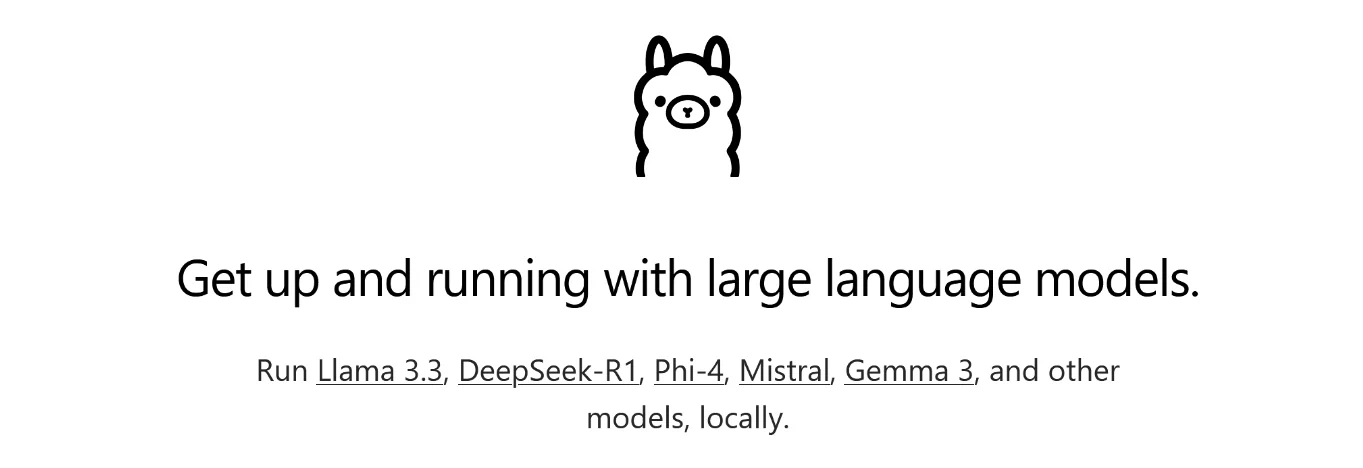Hosting Local LLM Models For Privacy And Costs Using Ollama
In our last article, we explored the approaches to optimize costs while using agentic coding tools like Cline, Cursor, Windsurf and Claude Code for software development. However, another common concern among students and early researchers is around privacy and trying them without signing up with multiple vendors.
Enter Ollama, a powerful tool that allows you to run Large Language Models (LLMs) locally on your machine. This article will guide you through using Ollama and explore some promising models for enhancing your agentic coding workflows.

Why Local LLMs for Agentic Coding?
Hosting LLMs locally with Ollama offers several compelling advantages for developers using agentic tools:
- Enhanced Privacy: Your code and prompts remain on your local machine, providing greater control over sensitive information.
- Reduced Costs: Eliminate or significantly reduce your reliance on paid cloud API services, leading to substantial cost savings, especially for frequent usage.
- Offline Access: Continue leveraging the power of LLMs even without an internet connection.
- Customization and Control: You have more direct control over the models you use and their configurations.
Getting Started with Ollama
Ollama makes it incredibly easy to download and run LLMs locally. Here's a quickstart guide:
Installation: Visit the official Ollama website) and follow the installation instructions for your operating system (macOS, Linux, Windows).
Running Ollama: Once installed, simply open your terminal and run the command:
1ollama serveThis starts the Ollama server in the background.
Downloading Models: To use a specific LLM, use the
ollama pullcommand followed by the model name. For example, to download thecodellamamodel:1ollama pull codellamaOllama will download the necessary model weights to your local machine. You can find a list of available models on the Ollama website or community forums.
Running Models: Once a model is downloaded, you can run it using the
ollama runcommand:1ollama run codellamaThis will launch an interactive session where you can chat with the model.
Promising Models for Agentic Coding with Ollama
Choosing the right model is crucial for effective agentic coding. Here are some models available through Ollama that show promise for various development tasks:
CodeLlama: Developed by Meta, CodeLlama is a family of LLMs specifically fine-tuned for generating and discussing code. It supports various programming languages and comes in different sizes, allowing you to choose one that balances performance and resource usage.
- Strengths: Excellent code generation, code completion, understanding code context, debugging assistance.
- Considerations: Larger models can be resource-intensive. Experiment with different sizes (e.g.,
codellama:7b,codellama:13b,codellama:34b).
WizardCoder: This model is fine-tuned from CodeLlama and has shown strong performance in code generation benchmarks. It often excels at more complex coding tasks.
- Strengths: Powerful code generation, handles intricate logic, good at following instructions.
- Considerations: Similar resource considerations as CodeLlama.
Mistral: While not strictly a coding-focused model, Mistral is a powerful and efficient general-purpose LLM that can perform well in code-related tasks, especially understanding and explaining code.
- Strengths: Strong reasoning abilities, good at understanding natural language instructions related to code, relatively efficient.
- Considerations: Might require more specific prompting for complex code generation compared to coding-specific models.
DeepSeek Coder: Another strong contender in the coding LLM space, DeepSeek Coder has demonstrated impressive results in code generation and problem-solving.
- Strengths: High-quality code generation, good at competitive programming-style problems, supports multiple languages.
- Considerations: May have different prompting requirements.
Phi-3: Microsoft's Phi-3 models are known for their strong performance despite their smaller size, making them potentially efficient for local use. While coding-specific fine-tunes are emerging, the base models can still be useful for code understanding and simpler generation tasks.
- Strengths: Efficient resource usage, good reasoning for its size.
- Considerations: Might require more careful prompting for complex code generation.
Choosing the Right Model:
The best model for your agentic coding needs will depend on several factors:
- Your Hardware: Consider the RAM and processing power of your machine. Larger models require more resources.
- The Complexity of Your Tasks: More complex code generation or analysis might benefit from larger, more capable models.
- Latency Requirements: If you need very fast responses, smaller, more efficient models might be preferable.
- Specific Language Support: Ensure the model you choose has strong support for the programming languages you work with.
Experimentation is Key: Try out different models with your specific use cases to see which one performs best on your hardware and for your tasks.
Integrating Ollama with Agentic Coding Tools
Once you have Ollama running and a model downloaded, you'll need to configure your agentic coding tools to communicate with the local Ollama server. The specific integration method will vary depending on the tool you are using. Here are some general approaches:
- API Endpoint Configuration: Many agentic tools allow you to specify a custom API endpoint for the underlying LLM. You would typically configure this to point to Ollama's default API endpoint, which is usually
http://localhost:11434. - Custom Extensions or Plugins: Some tools might have specific extensions or plugins designed to integrate with Ollama.
- Manual API Calls: If your tool provides flexibility for custom integrations, you might need to make direct API calls to the Ollama server using its documented API.
Refer to the documentation of your specific agentic coding tool for detailed instructions on how to configure it to use a local LLM via Ollama.
Conclusion
Ollama opens up a world of possibilities for leveraging the power of Large Language Models locally for agentic coding. By hosting models on your own machine, you can enhance privacy, reduce costs, and enjoy lower latency. Experiment with the recommended models and explore the integration options with your favorite agentic tools to unlock a more efficient and controlled coding experience.